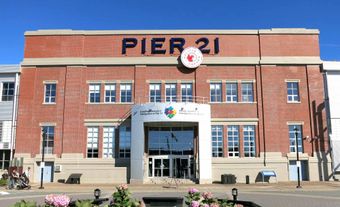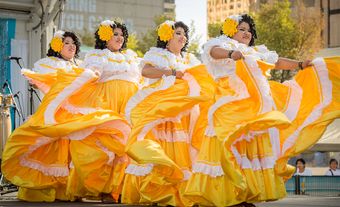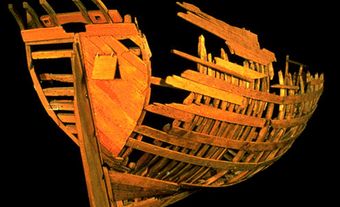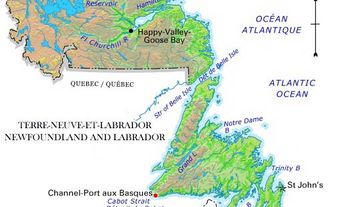Spanish presence on the land we now call Canada dates back several centuries to the voyages of Basque fishermen to the Atlantic coast, and to Spanish exploration of the Pacific coast (see also Spanish Exploration). Archaeologists have uncovered traces of a 16th century Basque whaling station at Red Bay, Labrador. However, significant Spanish settlement did not occur in Canada until the 20th century. The 2016 census reported 396, 460 people of Spanish origin in Canada (70,325 single and 326,130 multiple responses).
Early Exploration
Basque expeditions are recalled in names such as Channel-Port aux Basques, Newfoundland and Ile aux Basques, a small island in the lower estuary of the Saint Lawrence River in Quebec. Numerous Spanish explorations on the Pacific coast between 1542 and 1792 are recalled in names such as Alberni, Laredo Strait, Carmelo Strait, Mazaredo Sound, Mount Bodega, Quadra Rocks and Narvaez Bay (see also Quadra Island). At one time Vancouver Island in British Columbia was called Quadra and Vancouver's Island to commemorate the friendship between the Spanish navigator Juan Francisco de la Bodega y Quadra and English Captain George Vancouver.
Migration and Settlement
Between 1913 and 1914 about 2000 Spaniards arrived in Canada. Between 1920 and 1945, only 408 Spaniards came to Canada. Some Spanish farmers immigrated to Canada in 1957 under an agreement between Canada and Spain. Most immigrants arrived during the 1960s and 70s (16, 184 between 1961 and 1989) with approximately 1300 arriving each of the peak years 1966, 1967 and 1968. After 1977, immigration dropped off significantly.
The 2016 census reported that 396, 460 people of Spanish origin live in Canada. Most reside in the provinces of Ontario (171, 145), Quebec (85, 360) and British Columbia (64, 475).
Social and Cultural Life
Most Spanish immigrants are formally Roman Catholic, but there is also a very small group of active Protestants. Many Spanish cultural, social and recreational organizations are concentrated in Montreal and Toronto. Very often, they share their activities with other Spanish-speaking groups. Dance groups, especially of the flamenco variety, flourish in several centres.
In the 2016 census, 495, 090 people reported Spanish as their mother tongue language (first language learned), representing 1.4 per cent of the total population and 6.4 per cent of immigrant languages spoken as a mother tongue in Canada.

 Share on Facebook
Share on Facebook Share on X
Share on X Share by Email
Share by Email Share on Google Classroom
Share on Google Classroom




